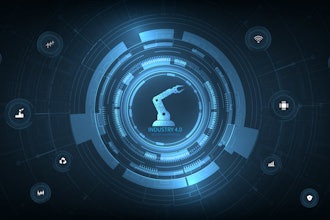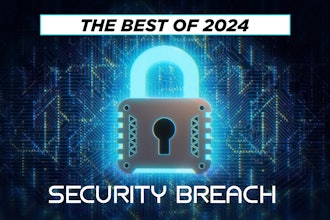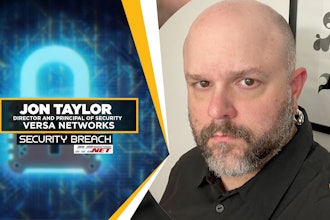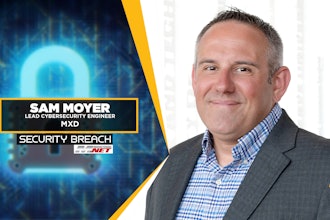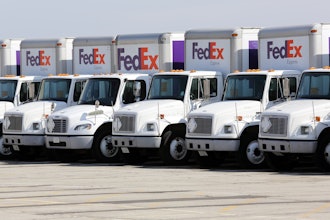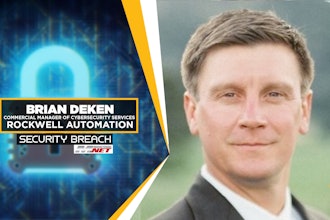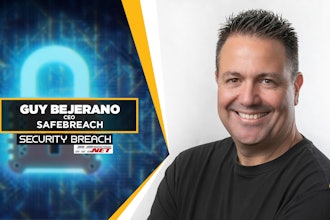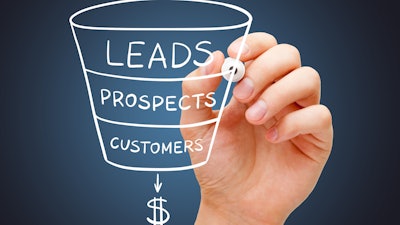
According to PipelineDeals, all CRM is not created equal. The Seattle-based company makes it its mission to help simplify the sales process, while also making it more efficient. At the root of this is shining the light directly on the middle of the sales funnel, a place where co-founder JP Werlin says “deals go to die.” We sat down with Werlin for more insight on how industrial companies can use CRM to close deals faster.
Industrial Distribution: Tell us about the platform. What makes you stand out amongst your industrial customers?
JW: We've been around going on 14 years now. Our original tagline, back in 2006, was “Built by a salesperson for a salesperson.” And that's really still core to who we are. And what we're about is helping people close more deals faster, and we manifest that in the product.
Really, we're a pipeline management tool. I think manufacturers like the fact that we are not overkill. We're light, but they also get the foresight and organization out of a pipeline management tool that they need to run and grow their businesses.
That’s really what we're about, and that's really what gets me out of bed in the morning is knowing we're helping other businesses grow, that we're very much of a service-based organization and that's true throughout our DNA.
When you look at the product, you think of it in three A's, right? It needs to be approachable. It needs to be adoptable and it needs to be affordable. So those really resonate with manufacturers (and they) understand that there's such thing as too much technology. For manufacturers and supply companies, we’ve solved that ‘Goldilocks’ problem really well. Not too much, not too little, just about right. So, I think that's what still attracts people to us versus all the different options on the market today, big and small. And we wrap it with a high-touch service layer that makes it even better.
ID: That's really interesting that that's your go to market. Whenever we survey our readers on software, we hear a lot about users who feel there's just too much technology there. They find it confusing and they wind up employing a lot of work-arounds. And then they’ve invested all this money in this solution that people don't even use or want to use…
JW: Correct. And then you're like, ‘why are we spending hundreds of thousands of dollars a year?’ We're talking to a very large company right now in the industrial sector, and they've told me they have 90 dashboards. Who has time to look at 90 dashboards?
You end up looking at the total cost of ownership. You're spending a ton of money on the licensing and all the extras to get service and mobile… and API access, generally, is extra. Ours is, all in, one price. And then you've got this entire sales operations infrastructure just to feed the beast. And that sort of all goes away. Now the technology alone is only part of it, right? The other part of it is the people and the process. And we talk a lot about the process here because, in a lot of ways, companies fall into these traps where they think more data is better and, a lot of times more is less. So we help them navigate that and go revisit their deal stages. Do you really need 12 deal stages? Can you simplify it? So that is part of our equation is looking at your process, along with the technology and the people, and making sure they're all complementary.
ID: Can you provide some specific examples of how this product is enabling users to actually close these deals faster?
JW: Number one is usage. Very simplistically speaking, any software is like a gym membership. And you're not going to get in shape if you don't go to the gym, right? The same is true with software. Your team or your company can’t get the advantage of it if they don't use it. And so being approachable and adoptable is key to that. Once you're in, there's a few things that really stand out for our users. Number one are the list views, where you can create and share your own view of your pipeline. Imagine, basically, an Excel sheet with its rows and columns. You can pull up all your deals by any set of criteria, reorganize it and share it with anybody or everybody in your organization. That feature is very heavily used and helps get the team focused on the same set of data so everyone knows what they're looking at. It makes it very easy to update and progress deals, as well as know what deals are falling through the cracks. So many deals are lost due to lack of follow through. And the root cause of that is lack of organization, time and energy. We really like to think of ourselves as a copilot with the sales rep in saying, ‘Hey, you forgot about this,’ or ‘Make sure this doesn't fall through the cracks.’
We also find successful companies use us as their system of record. We’re constantly striving to make sales activity as easy as possible to put into PipelineDeals so that it's not a burden on the rep. If you really look at us as a system of record, whether it's a phone call, email, meeting, calendar event or a task, that all being in one place really helps sales teams improve their sales cycle time. Because it's not lost in somebody's inbox.
ID: Tell us a little more about your latest feature, SuperShare.
JW: A true sales funnel, especially in an integrated supply chain world, is shared. As a supplier, we have a codependency with, not only the manufacturer, but also an inside or outside sales rep and the end user. Whether it's a factory or a machine shop or a plant or retail, wholesale, commercial – our sales funnel is all together.
That’s where SuperShare came from, because the manufacturer has zero visibility because there’s a shared funnel across three companies. (Now) they can share up and down their supply chain (because) we need to coordinate, and all these communications historically have been taking place in email. And that's where the sharing of pipelines are very limited. Some people are sending in spreadsheets. Some people are just sending updates in email … We started seeing all these use cases where we could share pipeline between companies. And that was really the genesis of SuperShare.
ID: In general, what role should CRM play in the sales process in your opinion?
JW: When it comes to sales, sunshine is the best disinfectant; just getting the light on that pipeline – especially the middle funnel stuff, because I believe that's where deals go to die. So we bring that light and visibility into the middle funnel.
And not all activity is created equal, so focusing on the quality of the activity – that's one way to close deals faster. I've seen too many sales teams just focus on activity at all costs. And you can use PipelineDeals to track the number of calls or track the number of emails – which is great. You want an active, outbound, hungry, motivated sales team. But after you have the muscle memory for inside the sales organization for activity bending question, what is the effectiveness of that activity? What are the best activities?
The other one is discipline. Generally speaking, you have very social animals on your sales teams. And as a sales manager, you want to minimally corral them in terms of software and tracking. So it's a balancing act for the sales managers: giving them the right visibility but not over overburdening their team with analysis.
Click here for more information on PipelineDeals.













